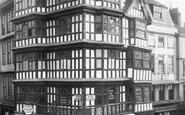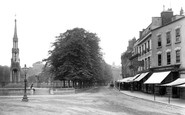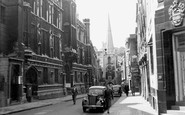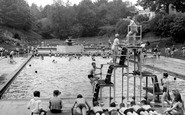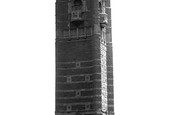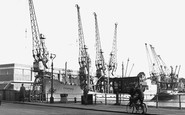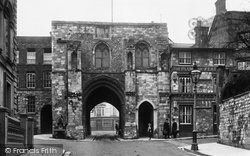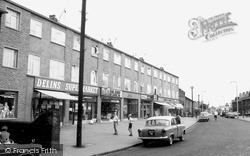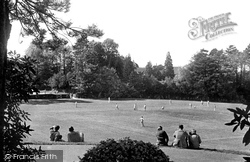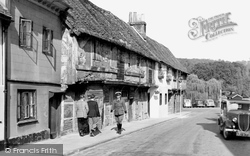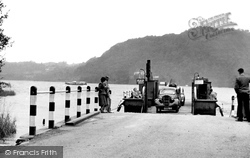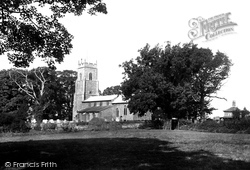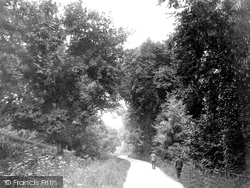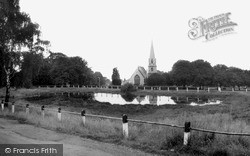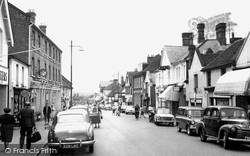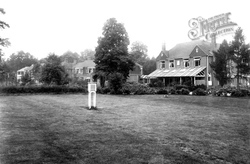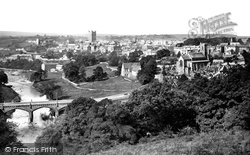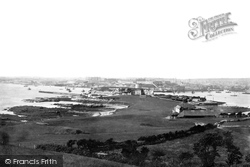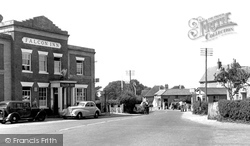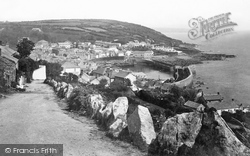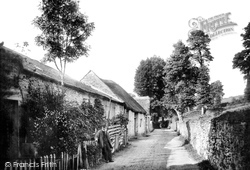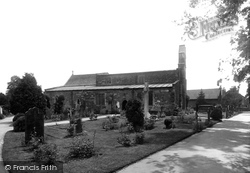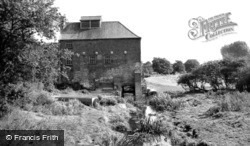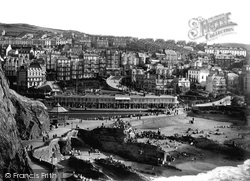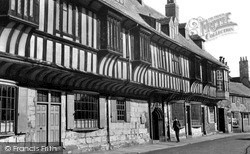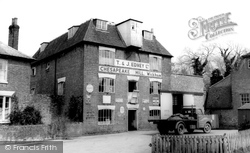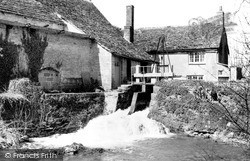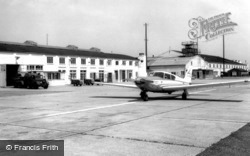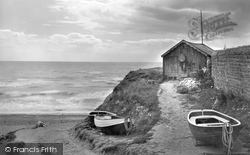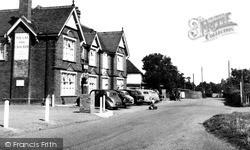Places
18 places found.
Those places high-lighted have photos. All locations may have maps, books and memories.
- Hythe, Kent
- Hythe, Hampshire
- Small Hythe, Kent
- Bablock Hythe, Oxfordshire
- Methwold Hythe, Norfolk
- Hythe, Somerset
- Hythe, Surrey
- Hythe End, Berkshire
- The Hythe, Essex
- Egham Hythe, Surrey
- West Hythe, Kent
- New Hythe, Kent
- Broad Street, Kent (near Hythe)
- Horn Street, Kent (near Hythe)
- Newbarn, Kent (near Hythe)
- Newington, Kent (near Hythe)
- Broad Street, Kent (near Hythe)
- Stone Hill, Kent (near Hythe)
Photos
360 photos found. Showing results 801 to 360.
Maps
101 maps found.
Books
10 books found. Showing results 961 to 10.
Memories
4,406 memories found. Showing results 401 to 410.
Childhood
I went to Dogdyke Primary School until i was 13 years old, I lived at Tattershall Bridge. Dogdyke was split by the River Witham, on the Tattershall side was The Packet Inn pub, where the ferry used to cross, and the Dogdyke pumping station. ...Read more
A memory of Dogdyke in 1954 by
Childhood Memories
Wonderful memories of Greatstone. My fifth birthday. A picnic on the vast sandy beach, playing hide & seek in the sand dunes, swimming in the sea-the water I recall was rather murky & the beach very muddy when ...Read more
A memory of Greatstone-on-Sea in 1957 by
Dutch House
The Dutch House - this 17th century building once stood on the corner of Wine Street. It was reduced to a charred skeleton during the Second World War and for safety's sake it had to be pulled down. The Dutch House was Bristol's ...Read more
A memory of Bristol by
Tales Of College Green
This shows College Green and its grand posh upmarket shops, at a time in the past when parking wasn't a problem. Many famous people lived round the Green over the years including Mary Robinson; actress and mistress of the ...Read more
A memory of Bristol by
St John's Gate Broad Street
St John's Gate in Broad Street in Bristol is the only surviving medieval city gateway, at one one time there were seven gates into the old city. Fortified gateways pierced the town wall at intervals. St John's Gateway, ...Read more
A memory of Bristol by
'up The Baths'
I remember being 'taught to swim' here, by the teachers at the board school. We were stood at the poolside, only up to the black line, then summarily being to "Jump!". If that failed, we were helped in by the boot of 'Danny' Davis or ...Read more
A memory of Brynmawr in 1965 by
Connecting With The Past
My father, born in 1906, was educated in an orphanage in South Shields from about 1916 to 1922. The orphanage was operated by the Sisters of Charity. I would like to visit the South Shields area this summer from the ...Read more
A memory of South Shields in 1920 by
Uppermount School
I went to Uppermount School, it was my first school, and my teacher was called Miss Brown. We used to sing 'The Farmer's in his Den' and stand in a circle calling children into the centre for small forfeits. There was a line ...Read more
A memory of Waterlooville in 1955 by
Bristol's Cabot's Tower
Bristol's Cabot's Tower, and the penny pinching Council. Bristol's most prominent land mark, the Cabot Tower, was 100 years old in 1998. But the official opening was marked by a disastrous fire, a confidence trick and some ...Read more
A memory of Bristol in 1890 by
Bristol City Docks 1989
Two of the cranes were purchased by 'City Dock Ventures' and two by the city council. All four were put into the museums care in 1989. Although the electricity supply to them was cut in 1974, one has been restored and another ...Read more
A memory of Bristol in 1989 by
Captions
4,899 captions found. Showing results 961 to 984.
It dates originally from the 12th century, and was reinforced during the Hundred Years War in anticipation of an attack by the French.
By the 1960s the supermarket was king. Families were buying new cars like the Standard in this picture. And if you could not afford a television, rent it from DER.
In this quintessentially English scene, one can almost hear the sound of bat hitting ball, followed by the ripple of applause from the knowledgeable spectators.
This was a working town that grew up, like Marlow, fed by the river trade that transported the goods and produce of the hinterland, mainly to London.
By the time this photograph was taken, cars had replaced the horses and carts, and the crossing was accomplished by a chain-operated pulley.
In the churchyard is the 1820s Mausoleum of the Traffords, the family of the long-demolished Wroxham Hall, whose gate lodge survives by the church.
They are obviously interested in something happening over the fence, down by the river.
That building was destroyed by fire and replaced by the one we see here in 1886. It was designed to seat 400 people.
The town's first factory was in production by 1952; by the time this photograph was taken, the population had quadrupulated.
The clean air and scent of the pines must have been welcomed by the London residents suffering from lung complaints, who were sent to Pinewood for their treatment.
On the right is St Mary's parish church, in the centre the Grammar School, and to the left Church Mill, demolished in 1969, the last of many Richmond watermills once powered by the
Occupied since prehistoric times, ownership was returned to the city in 1995 after nearly 70 years of occupation by the RAF.
Legend relates that it was close to here that the Saxon warlord Cerdic landed to begin the Saxon invasion of southern England, only to be thwarted by the British war-leader Arthur.
In common with Penzance and Newlyn, Mousehole narrowly escaped sacking by the Spaniards in the 1500s.
It bucked the trend seen throughout the rest of the county in Victorian times by doubling its size, but by the 1890s the population had peaked, and in 1907 it was declining.
Swallowed up by the suburbs of Market Harborough, this little village has managed to salvage some individuality.
Close to the canal, it was bought by the canal's owners, and with the installation of a steam engine it worked until around 1900.
This prospect, photographed from Capstone Hill, shows the sheer density of housing created by the Victorians to cater for the influx of visitors every summer.
The central doors, which can just be seen in this photograph, were made by the famous wood carver, Thompson of Kilburn: his signature, a mouse, is carved on the right-hand door.
Chesapeake Mill dates back to 1820 and was built by John Prior, a miller, partly of woodwork from an American warship of that name, captured by the much smaller British HMS 'Shannon' off Boston Harbour
Lechlade Mill, a mile east of the town, was powered by the River Leach which reached the Thames just below St John's Lock.
This photograph shows a Cessna aircraft as used by the Hampshire Aeroplane Club in front of an early terminal building, with the control tower and a large hangar on the right.
Crab, lobster and crayfish pots are stacked by the door. The stream disappears into the pebbles (left) and a moderate sea is running in what is visibly unsettled weather.
The Cat and Cracker got its name in 1954, when the brewers Style & Winch Ltd of Maidstone named it after the catalytic cracker, which breaks down crude oil, and was used by the nearby Anglo- Iranian
Places (18)
Photos (360)
Memories (4406)
Books (10)
Maps (101)



